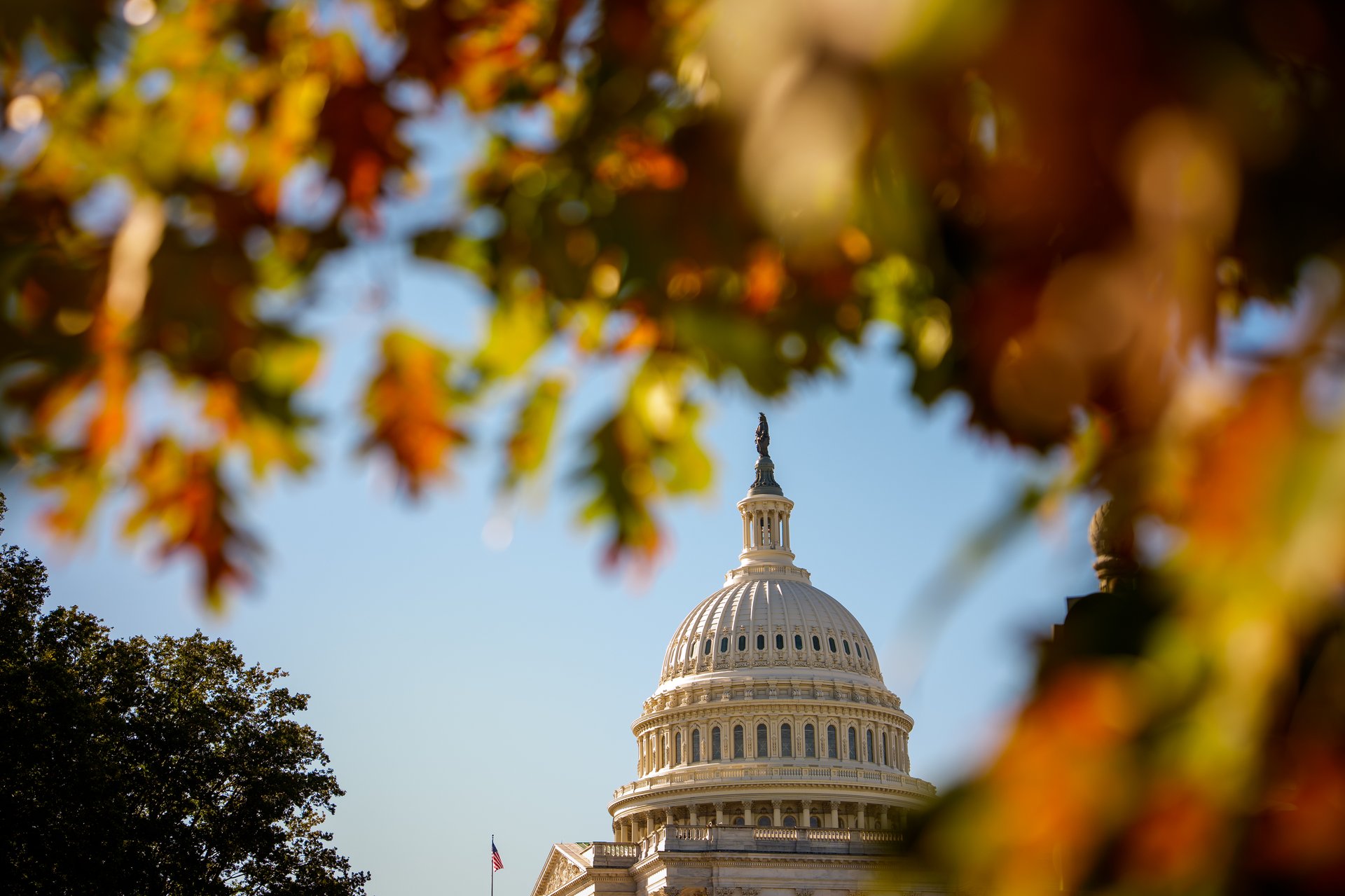'Feels like the Gilded Age.' Elon Musk's $1 trillion Tesla payday raises eyebrows in Washington
Among many Democrats, Musk's payday stirred anger about a divide that risks cementing wealth and power at the top of American life

The Dome of the U.S. Capitol Building is visible on October 22, 2025 in Washington, DC. (Andrew Harnik/Getty Images)
WASHINGTON — Elon Musk's lavish compensation package from Tesla had some lawmakers warning Friday about a new Gilded Age dawning in the U.S. Others accepted the will of shareholders as capitalism operating as intended. Yet it raised eyebrows all around the Senate.
Suggested Reading
On Thursday, Musk secured a $1 trillion pay package from Tesla shareholders. It's a staggering sum that would mint him as the world's first trillionaire if he achieves several ambitious corporate benchmarks in the next 10 years.
Related Content
The historic moment came in the middle of another: The compensation package was presented during the longest government shutdown in U.S. history, which has left some families anxious about receiving their next paycheck and unnerved others about losing access to food stamp benefits.
Among plenty of Democratic senators, it stirred anger about a divide that risks cementing itself in American life. For the ultra-rich, winner-take-all capitalism has been a stupendous success that created new fortunes, particularly in the tech sector. Much of it isn't taxed either, since they earn these chief executives' wealth through stocks and dividends taxed at lower rates.
"People compare today to the excesses of the roaring '20s, and Elon proves that is a gross understatement," Sen. Elizabeth Warren of Massachusetts told Quartz. "It's time to start talking about Marie Antoinette. All the wealth flows to the top, and peasants are left with crumbs. That's the world Elon Musk inhabits."
Tesla did not immediately respond to a request for comment.
That sentiment was echoed by Sen. Ron Wyden of Oregon, who once chaired the Senate Finance Committee when Democrats controlled the chamber under the Biden administration. For him, it demonstrated "the extraordinary, astounding sums" that are being minted at the upper rungs of American society while others are struggling to afford basic essentials.
"Forty-two million people are going hungry, and we've got a president who's practically wrestling with them over the issue of getting enough meat and bread and essentials to survive," Wyden said. "We better make some changes."
Wyden said 23 Democratic senators had signed onto his bill for a so-called billionaire income tax, the most support it's enjoyed among rank-and-file Democrats. The legislation would enact a tax on the sizable gains on tradable assets like stocks once they are sold by very rich Americans. Democrats, though, weren't able to cobble enough support for the idea when they controlled Congress and the White House in the first two years of the Biden presidency.
Sen. Mark Warner of Virginia, a centrist Democrat, verged more towards the middle. "It's jaw-dropping and it feels like the Gilded Age," Warner told Quartz. "I don't think it sends the right signal at this moment in time. But at the end of the day, shareholders have that right."
Sen. Tim Kaine of Virginia simply called it "gross."
Musk has said he waived a usual cash salary at Tesla. His pay package, though, far outstrips what other chief executives helming business and tech giants earn. An AFL-CIO database on CEO pay showed Starbucks CEO Brian Niccol earned $96 million last year. Microsoft CEO Satya Nadella made $79 million.
Republican senators tended to say the free-market was at work. GOP Sen. James Lankford of Oklahoma joked that Musk could afford to "buy a country" with a trillion dollars.
Still, he argued Tesla shareholders were free to assign a value to Musk's work for the company. Notably, Musk took time away from the company to embark on a cost-cutting endeavor of the federal government under the auspices of the Department of Government Efficiency, or DOGE.
"I think that's up to the board that he works for. That's not up to somebody in the U.S. government to decide that," Lankford said. "I would hope that every American has the opportunity to be able to make as much money as they want to."
Republicans tended to be comfortable with the sum, since they believed it would have broader benefits for the U.S. economy. For Sen. Mike Rounds of South Dakota, it was a straightforward calculation, saying that, "If they are growing our economy by trillions of dollars, that's a good thing."
One prominent Democratic economist sided with that argument from Rounds as well. "Musk’s pay package should be — and was — decided between his shareholder and him," Jason Furman, a Harvard professor who once served as chief economist to President Barack Obama, told Quartz. "If he hits all the benchmarks to get the $1 trillion he won’t just have made a lot of money for the shareholders but also likely will have helped increase American productivity and living standards."
Furman did have one piece of criticism. "My complaint is not with his pay, just that, as with other high-income people, it will not be taxed as much as I would like," he added.
